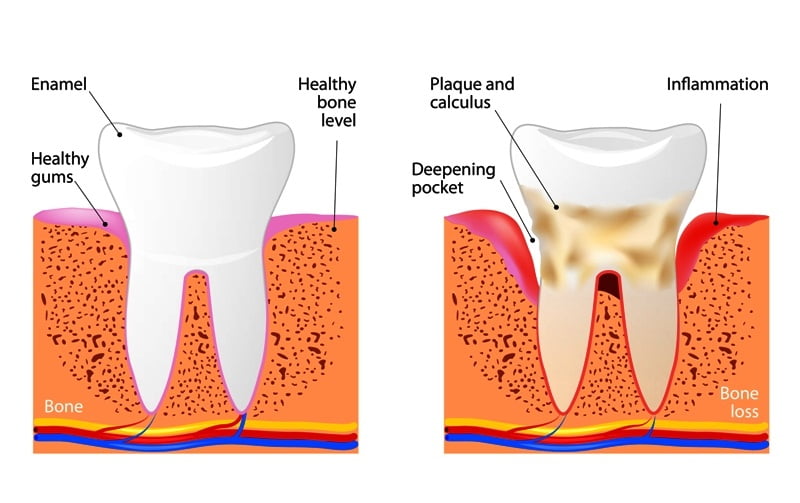Crohn’s Disease Medications
- Updated on: Nov 11, 2020
- 3 min Read
- Published on Nov 11, 2020

Crohn’s disease is an autoimmune disorder that damages the digestive tract. Generally, this disease affects the small and large intestine regions of the digestive tract, resulting in ulcers or cracks in these regions. There is no defined treatment to cure the disease, but some steps may be taken to cure the symptoms. These steps are medication, surgery, and dietary recommendations.
Patients affected by Crohn’s disease encounter widening (flares) of the digestive tract lining along with an increase in inflammation (relapse) and a decrease in inflammation (remission) for a short time. This cycle continues for several months to years. During a relapse, the symptoms such as abdominal pain, diarrhea, rectal bleeding also increase.
What Are the Different Types of Medications Prescribed for the Treatment of Crohn’s Disease?
The doctor prescribes a variety of medications for the treatment of Crohn’s disease. These include:
Antibiotics: These drugs are given to patients who are suffering from bacterial infections and abscesses. Commonly prescribed antibiotics are ciprofloxacin and metronidazole.
Anti-Inflammatory Drugs: These drugs are given to patients who have an inflammation in the digestive track. They help in reducing the pain and symptoms of diarrhea. Some of the anti-inflammatory drugs are:
Corticosteroids: These drugs reduce the inflammation of digestive tract. They are usually given to patients with mild symptoms.
Aminosalicylates: These drugs are given to patients who have mild to moderate symptoms. They also help in the disease remission. Some of the commonly recommended aminosalicylates are Balsalazide, Mesalamine, Olsalazine, and Sulfasalazine.
Biologics: These drugs reduce the inflammation by targeting the specific proteins involved in inflammation. They also help in can preventing the fistula if present in the digestive tract. Biologics are useful for treating the moderate to severe symptoms of the disease. They are given to patients other medications are not effective. Some of the examples of this class of drugs include Adalimumab, Adalimumab-atto, Certolizumab pegol, Infliximab, Natalizumab, and Vedolizumab.
Immunosuppressant Drugs: This class of drugs is responsible for reducing the activity of immune system against body’s own cells, and also help in remission. Immunosuppressant drugs are given to patients when other drugs are ineffective, or if there is any fistula within the digestive tract. Examples of immunosuppressant drugs are Azathioprine, Mercaptopurine, and Methotrexate.
Anti-Diarrheal Drugs: These drugs are prescribed when patients suffer from severe diarrhea.
Read About the Overview of Crohn’s Disease
What Major Drugs Are Prescribed for Crohn’s Disease?
Anti-inflammatory drugs (such as aminosalicylates and corticosteroids) and immunosuppressant are the major drugs prescribed for Crohn’s disease. These drugs are recommended to patients depending upon the severity of the disease and the associated symptoms.
What is the Dosage and Route of Administration of Drugs Recommended by the Doctor in Crohn’s Disease?
The dosage and route of administration of the drugs usually depend upon the patient’s condition and may be as follows:
- A single tablet once a day.
- These drugs may be given intravenously via injections.
- Some medications are given through a drip after every 2-8 weeks.
- Some drugs are given daily for several weeks to months.
Are There Any Side Effects of These Drugs?
All the medications used in Crohn’s disease have their own side effects. However, some of the common side effects are:
- Nausea.
- Vomiting.
- Abdominal cramping.
- Problems during pregnancy and breastfeeding.
- Increased risk for infections and liver diseases.
- Relapse of latent tuberculosis and Hepatitis B.
- Increased risk for heart failure patients.
- Fever.
- Rashes.
- Headache.
- Joint pain.
- Indigestion.
- Reduced growth in children.
Who Should Not Be Recommended Crohn’s Disease Medications?
There are certain individuals for which Crohn’s disease medications are not recommended. Some of these individuals are:
- People who are allergic to medications like corticosteroids, immunosuppressant drugs, etc.
- Severe heart failure patients should not be recommended biologics >5mg/kg.
- People with preexisting bone marrow and blood toxicity should not be given immunosuppressant drugs.
- Alcoholics.
- People suffering from peptic ulcer, liver impairment, fungal and viral infections should not be recommended corticosteroids.
Should NSAIDs Recommended in Crohn’s Disease?
Although NSAIDs reduces the pain, their recommendation depends upon how the patients react to these drugs. It is safe to recommend NSAIDs in some individuals as it may help in getting relief from the symptoms. However, these drugs may worsen the symptoms in other people.












1 Comment
I don’t think the title of your article matches the content lol. Just kidding, mainly because I had some doubts after reading the article.